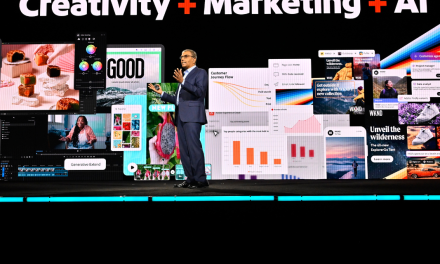Japan’s online financial service provider Uzabase today claims the largest industry and corporate database with the resources to mine the right data and provide customized reports across 560 industries.
Aiming to establish a greater stronghold in Southeast Asia, and tapping on new data insights and using Machine Learning, Uzabase has made its business information platform SPEEDA more intuitive for users accessing information and multi-featured with the ability to search and browse information, analyse data, and develop professional reports, all in one visit.
MartechAsia finds out more from Yasunori Naito, Chief Executive Officer and Regional Head, SPEEDA Southeast Asia.
How is SPEEDA using insights from the data you collect? What new advanced technologies are you leveraging?
SPEEDA’s data is used to understand trends within the industry. An example of this is how the platform uses trends on mergers & acquisitions in the electronics manufacturing industry to help companies understand what are the average profitability and revenue growth in this industry. On top of that, one can also monitor major developments that can affect this industry with the premium news database.
Our technology allows Machine Learning (ML) to incorporate high-quality training data delivered by our in-house analysts through the library of industry reports in our database. For example, ML helps bridge the gap in a user’s research as we have created a model to link separate notions, such as connecting “Industry” and “Company” within the SPEEDA platform, which can provide some value to our customers.
The ML technology can map millions of Asian companies in our database to the right categories, so that users can pull our comparable companies quickly and rather accurately We are using ML to link massive volumes of data, which is impossible to complete mapping manually. This process also condenses the amount of time taken for research mapping. ML allows extensive data to be linked in uniform criteria, which would not be exhaustive without the help of technology.

How are you personalising the customer experience for your subscribers?
Upon a user’s onboarding onto the SPEEDA platform, account managers will be assigned to each customer to reach out for daily questions or consultancy for their research work. Also, we have an on-demand consulting service that develops customized reports from our multilingual analysts. This is done by conducting desktop research on behalf of our clients for niche data unavailable in our database, transferring it into a presentation or a list in their desired format.
For example, this could even include obscure research into areas such as finding the “Value chain chart for Japanese Players in the Oil Palm industry” or creating a report that looks into “Impact of COVID-19 on Malaysia’s Tourism Industry “. This customisation helps our clients to reduce their costs and time for initial research.
How unique is your research for the finance industry in this region?
Global trends may have limited impact in this region, which may not be as useful to our clients. Our focus is on the Asia region and if there are any topics that have specific impact in this region, for example, the shift of investment focus from China to Vietnam, we tend to focus on these and we mobilise a team to piece together supporting data and information.
With the emergence of generative AI tools such as ChatGPT, do you see this as a threat to your industry?
Though ChatGPT can support desktop research to understand the overview of the industry or market, accuracy and credibility can still be a concern. Our content is curated as our analysts are responsible for putting up information which is relevant. The analysts and consultants employ their own methodology and rationale for assumptions made in reports which they can explain to our users.
SPEEDA also invests in acquiring high-quality data like private company financials, directors, and shareholder information, which are not freely available in the public domain.



















